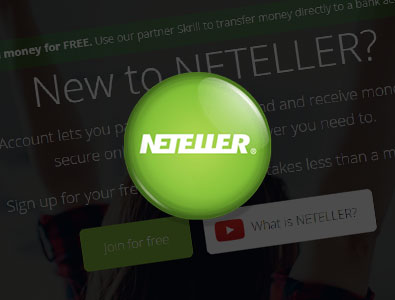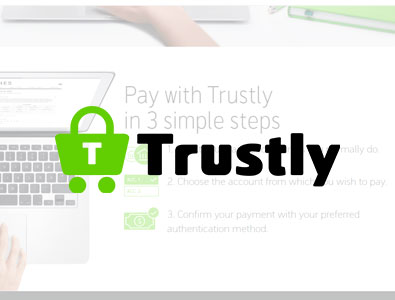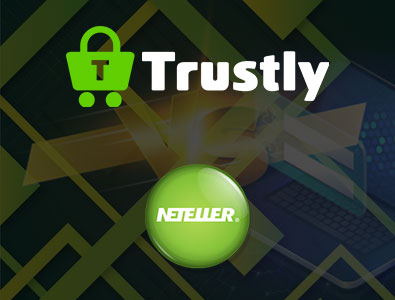On this page
Trustly vs. Neteller Casinos
Introduction
Finance is just one of the many industries to have benefited greatly from the tech breakthroughs of the century. People have been inclined to eliminate cash payments for quite some time now, with the first attempts recorded in the first half of the past century. Since the introduction of paper checks, as well as plastic credit and debit cards later on, the trend was hard and fast on the way.
In an attempt…
… to achieve the industry’s goal, and at the same time, eliminate down time without going at the expense of security or convenience, a new payment model has been introduced. E-wallets, i.e. online payment processing and facilitating services generally, are the latest invention in terms of banking.
The novelty of the practice put off their popularity during the first few years, but ever since, it has skyrocketed, distinguishing the good from the bad along the way. Speaking of which, Trustly and Neteller are two of the top brands in this line of work, with each making the most of their own mechanisms to serve customers.
All in all…
… today’s consumers can request charges, pay fees, transfer funds, book facilities, schedule regular payments and so much more without even leaving their home. As long as you have enough money in one of your accounts, getting them across to the desired destination with Trustly or Neteller is easier than ever.
The best way to choose between the two is by making an informed decision – so stay tuned, as we go through the main rounds where Trustly and Neteller go head to head, and learn which service comes ahead of the other.
About Trustly
Trustly Group AB…
… is the name of the company behind the product we know and use as Trustly. Essentially, it is a service rather than a fully fledged e-wallet, since there is no actual storage involved in its operations. In other words, what Trustly does best is handle your transaction from one account to another (say from your bank to the e-merchant you have decided to shop from) directly and almost instantly.
Considering the nature of the service…
… and the conveniences it brings about, it is no wonder that it turned out to be a great success.
The company first started out as the joint effort of three tech-savvy friends back in 2008, in Stockholm, Sweden. As stated straight from their website, Trustly has been successful since day one, and one of their greatest achievements has been the progress from 1 million transactions annually, to 2 million per month. Plus, they’ve managed to expand offices to territories globally – Malta, Barcelona, Cologne, London and Helsinki – bringing in all the more business volume and stability to the company.
About Neteller
As for online customers…
… looking to experience payments with an e-wallet, Neteller is a sure choice. The solution has been launched almost a decade before Trustly, in 1999; since then, the company went through numerous hands before finally landing in the ownership of Paysafe Financial Services.
This e-wallet allows individuals to handle finances any way they seem fit – from storing, through exchanging, transferring, all the way to collecting payments. The security and convenience further add to the service’s advantageous character, maintaining its high-ranking position among the competition.
Trustly vs. Neteller
As it seems…
… both services have been doing a great job at running their day-to-day operations. Regardless of the different mechanisms employed by Trustly and Neteller, they are still found in many similar environments – the banking pages of e-merchants everywhere.
With that in mind, it is up to the consumer to choose one that would work best for their online payment needs. During the decision-making process, it is best to consider the key functionalities of each solution in order to come up with the most suitable one.
Starting off…
… with the accounts available in each service, this comparison aims to introduce potential users to the basic options placed at their disposal. Moving forward, it is essential to consider payment processing, funding, and withdrawing from the given service as primary uses.
In addition to these considerations…
… user benefits and security could also serve as useful guidelines along the way. After all, making sure the service meets the requirements users have in mind will save them precious time later on. Hence, for anyone dwelling between Trustly and Neteller, or still shopping for the top payment method in the pool of options, the following analysis is more than welcome.
Payment Methods Comparation
 |
 |
||
|---|---|---|---|
| Payment method name | Trustly | NETELLER | |
| Available accounts | 1 account | 1 account (1;2;3;4;N/A different currency accounts) | |
| Available currencies | n/a | AED, AUD, BGN, BRL, CAD, CHF, CNY, COP, DKK, EUR, GBP, HUF, INR, JPY, MAD, MXN, MYR, NGN, NOK, PLN, RON, RUB, SEK, SGD, TND, TWD, USD, ZAR | |
| One time signup bonus | n/a | n/a | |
| Account management fees | n/a | free | |
| Account unused | n/a | unused for 12 months: 5.00 USD (or equivalent) /month | |
| Exchange fees (FX) | n/a | 3,99% (3.79%; 3,19%; 2,79%; 2,39%; 1.29%) | |
| p2p Money transfer | |||
| Send money p2p | n/a | 1.45%, minimum 0.50 USD (1.45% money transfer fee with min. of 0.50USD for Bronze, free of charge for Silver, Gold, Platinum and Diamond) | |
| Receive money p2p | n/a | free | |
| Deposit fees | |||
| Bank transfer | n/a | 2.5% | |
| Instant bank transfer | n/a | 2.5% | |
| Credit card | n/a | 2.5% | |
| Withdraw fees | |||
| Bank transfer | n/a | 10 USD | |
| Cheque | n/a | N/A | |
| Prepaid card at the ATM | n/a | 1.75% (1.75%; 1.75%; $6; $6; $6) | |
| To merchant site | n/a | free | |
| PrePaid Card | n/a | Net+ Prepaid MasterCard (Net+ card is only available to residents of authorized European Economic Area (EEA) countries) | |
| Requirements to order | n/a | n/a | |
| Fee to order | n/a | 10 EUR | |
| Membership | n/a | n/a | |
| Costs for cash withdrawals at the ATM | n/a | n/a | |
| ATM transaction decline fee | n/a | n/a | |
| Costs at points of sale | n/a | free | |
| Stop payment fee for preauthorized | n/a | n/a | |
| Online bank statement | n/a | free | |
| New PIN | n/a | n/a | |
| New prepaid card | n/a | 10 EUR | |
| Cash withdrawal at ATM limits/24h | n/a | 1,000 USD (1,000; 1,000; 3,300; 3,300; 3,300) | |
| Points of sale limits/24h | n/a | 2,250 EUR | |
| Delivery time | n/a | 2 -10 business days | |
| Available currencies | n/a | AED, AUD, BGN, BRL, CAD, CHF, CNY, COP, DKK, EUR, GBP, HUF, INR, JPY, MAD, MXN, MYR, NGN, NOK, PLN, RON, RUB, SEK, SGD, TND, TWD, USD, ZAR | |
| Validation | n/a | 3 years | |
| Cashback and promotions | |||
| Promotions | n/a | none (regular low-prize draws) | |
| Additional bonus-programs | n/a | n/a | |
| Two Factor Authentication | n/a | Two-step Authentication | |
| Fee to order | n/a | free app | |
| Delivery time | n/a | right after app installation is completed | |
| Money-back guarantee in case of fraud | n/a | for all NETELLER users | |
| Link to Terms & Conditions | Visit | Visit | |
User Accounts
The first thing to learn about a payment processing service is the type of account, or accounts, you can hold. Individual users looking for a way to pay for their goods or services online may be after the simplicity of a single account for all their needs. However, others may be looking to handle more operations, or connect it to their respective business, which is why some insight in the matter can come in handy.
Trustly
What is interesting about Trustly…
… in this regard is that there is no formal account that users need to create. As mentioned earlier, it isn’t a fully fledged e-wallet, but rather a mediating service which handles the funds transfer in the background. Still, interested users should have a valid bank account at one of the eligible countries serviced by Trustly. The rest is done without registration or memorizing additional log-in details – simply choose Trustly, log into your existing online bank account and complete the payment info.
Nevertheless…
… there are still some notable features that Trustly shares with account-based services. Availability is one, with the payment method currently listing 29 countries from the EU/EEA as marketplaces it covers. Due to such focus, its primary currency is the Euro, but users are welcome to transact in a different currency as well. For this, they will be charged 2.75% of the transaction as a currency exchange fee.
Neteller
On the other hand…
… Neteller users will need to sign up in order to use the service. Users can open one account per individual, and will be able to choose up to 4 currencies for it. That way, anyone transacting in more than one currency can store, receive and send out funds in each one of the four options without additional charge.
And with 22 currencies to choose from, Neteller provides enough options to meet the tastes of different user profiles. If the transfer is processed in any currency other than the chosen ones, you should expect to incur the standard 3.99% exchange fee.
Aside from the fiat currencies such as AUD, CAD, DKK, EUR, GBP, JPY, NOK, SEK, USD and more, Neteller users can also perform payment operations in several cryptocurrencies. More precisely, those buying or selling one of the available tokens – Bitcoin, Litecoin, Bitcoin Cash and Ethereum – using USD or EUR will only incur a 1.5% fee, while those using any other fiat currency will be charged 3.00%.
A monthly USD 5.00 maintenance fee is also charged if the user hasn’t shown any activity on their account for longer than 12 months.
Payments, Deposits & Withdrawals
The primary use of these services is to process users’ payment requests. Some additionally serve for storage, finance management and other functions, but for the regular e-shopper or online casino player, deposit and withdrawal processes are the most important.
Trustly
Due to the service acting solely as an intermediary between the user’s accounts, they don’t fund any additional account. Trustly simply connects to the user’s bank account, as long as it is one of the partnering institutions in the eligible countries. This shouldn’t be a problem, since Trustly has developed quite a network, making it eligible for multiple bank account holders and e-merchants alike.
Neteller
Since Neteller is essentially an e-wallet…
… users need to fund it with an amount of their choosing before they can use it for online payments. In this regard, transferring value to the Neteller e-wallet is done through bank accounts, credit and debit cards, other e-wallets and online payment processors, or even with crypto. Regardless what means you use to fund your Neteller e-wallet, you will be charged a standard 2.55% fee across all options.
As for merchant payments…
… the fee differs for direct bank transfers and member transfers – USD 10 and USD 12.75, respectively. Sending funds from your Neteller e-wallet to a money transfer service incurs 1.45% fee charge with a minimum of USD 0.50. Ultimately, sending funds to a partnering merchant is free, which is largely convenient considering Neteller’s widespread presence on partnering websites.
User Benefits
Online gambling is definitely all about who has more to offer to their player pool, for lesser charge. From bonuses, through cashbacks, all the way to special treatment and account management, online casino players can get spoiled by their operators as long as they choose the right ones. This has more or less been adopted by payment services as well, with some offering more than others.
Trustly
With speedy, convenient, easy-to-use services…
… Trustly is already a benefit for online players and consumers in general. Topped with high-end security measures, latest encryption tech, and most importantly, completely free of any charges for payment processing, the staff at Trustly haven’t devised any particular loyalty program, opting to cater to all their users equally excellently.
Neteller
Contrary to Trustly…
… Neteller does employ a full-on VIP loyalty program as part of their service offering. This actually helps players and users alike reduce their charges and costs as they climb up the five tiers – Bronze, Silver, Gold, Platinum and Diamond.
Each of these offers their own set of additional benefits, and all you have to do to pass onto the next one is transact a given amount through the service in a year. The lowest Bronze level takes just $10,000, while users will need to go through $50,000 to qualify for Silver and $100,000 for Gold. The Platinum level is reached with $500,000 worth of transactions a year, and $2,000,000 for the Diamond VIP Loyalty program package, filled with exclusive and unique benefits.
Security
Security is a major point of consideration any time users’ funds are involved in the equation. For online payment processing services, the bar is even higher, as they have needed to prove their reliability in order to attract sustainable traffic volumes. Both Trustly and Neteller have handled this matter with great care, but a closer look could help you choose one over the other.
Trustly
The service is fully recognized and supervised by the Swedish Financial Supervisory Authority (FSA), known for their strict and rigorous requirements. What is more, they are a licensed European Payment Services Provider (PSP) for the EU/EEA zone, which is actually their main marketplace.
Moreover…
… Trustly employs top-notch encryption certificates to protect any and all data or funds being transferred during their transactions. This prevents third-party intrusion, or alternately, misuse of the given data.
Neteller
Neteller is just as legally recognized by high authoritative bodies in the industry – the Financial Conduct Authority in the UK, to be more exact. This has enabled it to provide services across the many marketplaces, and easily boost their partner network.
Due to the fact that e-wallet users actually hold accounts with stored value through this solution, the company additionally enabled layers of protection. Hence, individuals can activate dual-factor authentication, and receive a one-time-use code on their linked mobile phone number or email each time they log in with their credentials.
Alternatively…
… Neteller offers the Secure ID option, which designates a unique 6-digit code per individual. Users will need to enter it in order to authorize anything from logins, through transfers, all the way to account information changes.
Physical Card Availability
In a sort of homage to the good old plastic cards, but just as much due to their extensive popularity, convenience and widespread use, many modern services include a physical card as part of their payment solution offering. Check out which of these services provides the option, and make sure the terms are favorably in line with your needs.
Trustly
Since Trustly does not offer any funds storage services, or an actual account registered to their platform, there is no purpose to issuing a plastic card. This further helps them achieve their goal of simplicity in online payments – making less work more, and better, for the final user.
Net+ Prepaid MasterCard
In partnership…
… with one of the top major card processing services worldwide – MasterCard, Neteller have opted to include an actual plastic card solution to their user pool. This boosts the availability of their funds, since card holders can use the balance to pay anywhere where MasterCard is accepted – POSs, ATMs and more.
Card application is free…
… while delivery will cost you a one-time flat charge of USD 10 upon arrival. This can take 2-10 business days depending on location and availability factors.
Using the card in other than the chosen currency charges the standard 3.99% exchange fee, and the best part is you can create and link up to 5 Net+ Virtual Prepaid MasterCard accounts to one plastic card. Each additional linked account will incur a charge of USD 3/ EUR 2.5/GBP 2.
Conclusion
This comparison alone is enough to understand how both services have remained successful for so long. Each of these offers a unique and distinguished set of functionalities, performed differently, but with the same purpose – secure, speedy and convenient online payments.
On the whole…
… it is best to weigh in the facts as you see them – pros or cons, consider the fees to calculate your overall profit, and ultimately choose which one of the two payment methods works best for your online gambling, or other e-commerce needs.





